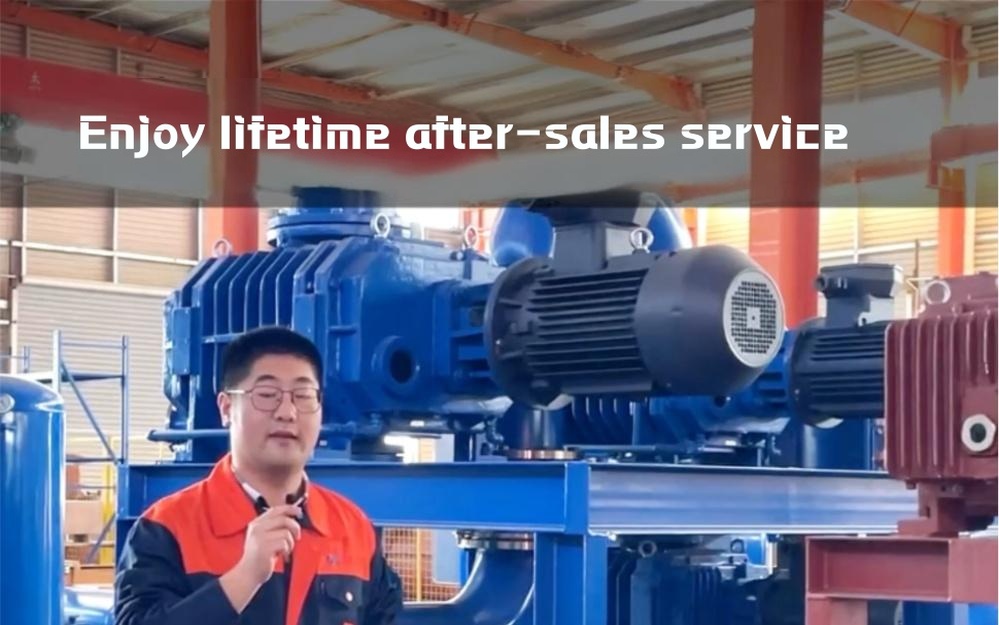In the field of chemical production, the procurement of chemical centrifugal pumps is a crucial decision. When considering the purchase of chemical centrifugal pumps, many enterprises will turn their attention to small manufacturers, and there are numerous notable advantages behind this.
Ⅰ.Outstanding Cost Performance
Small manufacturers possess unique advantages in their cost structure. Compared with large enterprises, their operating costs are lower, without complex hierarchical management frameworks and large-scale marketing expenses. This enables them to provide customers with more affordable chemical centrifugal pumps while ensuring a certain profit margin. For enterprises with limited budgets, purchasing from small manufacturers can effectively reduce procurement costs and achieve higher capital utilization efficiency. Moreover, small manufacturers are often more willing to negotiate prices with customers. Since the scale of orders has a relatively significant impact on them, they will actively communicate with purchasers when facing reasonable price requests, striving to reach cooperation, which makes it possible for purchasers to obtain more favorable prices.
Ⅱ.Strong Customization Capability
The technological processes in chemical production are diverse, and the requirements for chemical centrifugal pumps also vary greatly. The flexibility of small manufacturers demonstrates great value in such situations. Their production arrangements are not as restricted by large-scale production as those of large manufacturers, and they can easily adjust production processes and procedures. If purchasers have requirements for special materials, unique size specifications, or specific performance parameters of centrifugal pumps, small manufacturers can respond promptly and carry out customized production. During the entire customization process, the simple internal communication chain of small manufacturers ensures the efficient and accurate transmission of information. Purchasers can directly communicate with technicians and production managers to quickly feed back changes in requirements, ensuring that the customized chemical centrifugal pumps can perfectly adapt to the production environment.
Ⅲ.Unique Professionalism
Many small manufacturers focus on the specific segment of chemical centrifugal pumps.Long-term in-depth cultivation has enabled them to accumulate profound professional knowledge in technical aspects. They concentrate their limited resources on the research development and production of specific types of chemical centrifugal pumps, and their understanding and mastery of the products often exceed those of some large comprehensive enterprises. This professionalism is reflected in the control of performance details of chemical centrifugal pumps. Whether it is the flow rate, head, efficiency of the pump, or special properties such as corrosion resistance and wear resistance, they have conducted in-depth research. During the selection stage, small manufacturers can provide precise suggestions to purchasers based on their professional knowledge, helping purchasers choose the most suitable centrifugal pumps for their own chemical processes, and avoiding subsequent usage problems caused by improper selection.
Ⅳ.Obvious Advantages in Delivery Time
In chemical production projects, time is money. Small manufacturers have unique advantages in terms of delivery time. Due to their relatively small production scale, it is more convenient to adjust production plans. When purchasers have urgent order requirements, small manufacturers can quickly arrange production to prioritize meeting the time requirements of customers. Meanwhile, some small manufacturers will reserve a certain amount of inventory according to common market demands. For some commonly used models of chemical centrifugal pumps, purchasers can quickly pick up the goods after placing orders, greatly shortening the waiting time and facilitating the smooth progress of chemical projects.
Ⅴ.Thoughtful After-sales Service
Small manufacturers are well aware of the importance of customers to their own development, so they often spare no effort in after-sales service. When customers encounter problems during the use of chemical centrifugal pumps, small manufacturers can respond quickly. They do not have cumbersome after-sales procedures, and technicians can quickly get in touch with customers to understand the problems and provide solutions. Moreover, the after-sales service of small manufacturers is more personalized. They can provide on-site installation guidance, equipment debugging, regular maintenance, and other comprehensive services according to the actual situation of customers. This thoughtful after-sales service not only can ensure the normal operation of chemical centrifugal pumps and extend the service life of equipment, but also can make purchasers feel meticulous care, laying a good foundation for long-term cooperation.
In conclusion, when purchasing chemical centrifugal pumps in China, small manufacturers, with their characteristics in terms of price advantages, customization capabilities, professionalism, advantages in delivery time and after-sales service, have become a high-quality procurement option that cannot be ignored, providing strong support for the stable production and development of chemical enterprises.
Ⅵ.Manufacturer Recommendation
At Anhui Changyu Pump and Valve Co., Ltd., our pumps are offered at favorable prices while maintaining excellent quality.
We can customize special materials, unique size specifications or specific performance parameters of centrifugal pumps according to the specific requirements of buyers.
Moreover, our company has been deeply engaged in the production of chemical centrifugal pumps for more than 20 years. This professionalism is reflected in the control of performance details of chemical centrifugal pumps. Whether it is the flow rate, head, efficiency of the pump, or special properties such as corrosion resistance and wear resistance, we have conducted in-depth research.
When there is an urgent order requirement, our company can quickly arrange production to prioritize meeting the customers' time requirements.
When customers encounter problems during the use of chemical centrifugal pumps, our company can respond quickly. We don't have cumbersome.















